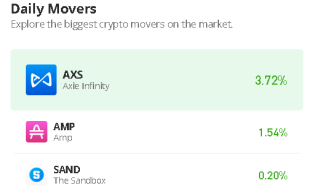Join Our Telegram channel to stay up to date on breaking news coverage
According to rules established by the US Securities and Exchange Commission (SEC), the first special purpose broker-dealer license has been granted, allowing a cryptocurrency firm to handle securities backed by digital assets. There is, however, a catch: Bitcoin cannot be supported.
The clearance, according to Prometheum Ember Capital, a New York-based company created in 2021, enables it to act as a certified custodian and safekeep digital asset assets on behalf of individual and institutional clients. The company sees it as a significant step in establishing the legal framework and permits necessary to eventually allow its parent company, Prometheum Inc., to offer cryptocurrency trading to customers.
Conflicts with the government
We have previously reported that, during the last part of 2022 and first part of this year, the U.S. government has been engaged in a series of actions against cryptocurrency firms and, through its agencies CFTC and the SEC, has claimed that crypto tokens are securities and outrightly sued some exchanges. Many critics have spoken against these actions, claiming that the U.S. government is driving crypto innovation out of the country. Indeed, we have seen firms leave the United States for greener pastures in Europe (France) and Asia (Hong Kong).
The news of Prometheum Ember Capital’s license approval could be seen as indicating that it is possible to register as a cryptocurrency business with US regulators. The majority of digital assets, according to SEC Chair Gary Gensler, are securities, and companies that sell them to US customers must register with the SEC. However, many crypto companies have disputed that claim, arguing that Congress should take action to enact new legislation because the current regulations are ineffective.
Prometheum was founded in 2017 by a group of Wall Street attorneys and it describes itself as a “blockchain-focused company building an end-to-end ecosystem for the trading, custody, and settlement of digital asset securities.”
According to co-chief executive officer of Prometheum Inc. Aaron Kaplan,
the company’s entire thesis is that digital assets are securities, and the best way to regulate them is under the federal securities laws.
Under former Chair Jay Clayton, the SEC issued a policy statement in 2020 that outlined a process for businesses involved in cryptocurrency to become registered as special purpose broker dealers. Such applications are reviewed and approved by FINRA, the Financial Industry Regulatory Authority. Firms must fulfill regulations and can only own digital asset securities, not traditional securities or crypto assets that aren’t securities, like Bitcoin, in order to receive the license.
Prometheum denied to provide a list of the tokens it will support, stating that decision-making over which assets qualify as digital asset securities would be made internally.
Kaplan said:
We share the same opinion as Chairman Gensler and hope to be able to support many of those assets. Chairman Gensler has said that the vast majority of digital assets, essentially everything except for Bitcoin, is a security.
In its press release, the company stated:
With the approval of the SPBD, Prometheum Capital will serve as a qualified custodian. Standing in contrast to crypto exchanges and other trading platforms in the U.S. that operate only under state licenses, Prometheum Capital is subject to the Securities and Exchange Act (“SEA”) 15c3-3 Customer Protection Rule as required under federal securities laws.
Limited Route
The company’s selection of items is currently constrained. The company cannot combine its broker-dealer license with an alternative trading systems license to enable consumers to trade digital assets because it has not yet received clearance for clearing and settling under that license.
According to a company representative, Prometheum Ember anticipates getting more approval to clear and settle transactions soon. Additionally, it has a company with an alternative trading system license. In the long run, clients will be able to trade cryptocurrency through Prometheum’s subsidiaries.
Despite the restrictions on what a business may now do with it, some legal experts claim that the initial approval of this license signals a significant milestone.
Gary DeWaal, senior counsel at Katten and a former US Commodity Futures Trading Commission enforcement attorney, said that the announcement “now opens the door for an SEC registered entity to have custody over some digital assets securities in this space.” It demonstrates that a path exists.
Obtaining the special broker license, however, might be challenging for already-established crypto exchanges.
According to Russell Sacks, partner at King & Spalding, “the conditions in the December 2020 release are quite complex and rigid and create a very complex web of policies and procedures that need to be put in place in order to meet the requirements.” “The barriers to establishing special purpose broker dealers that are designed to deal with securities relating to digital assets are still very much present.”
DeWaal argued that defining what constitutes a digital asset security and what does not remain the most important problem in achieving regulatory clarity. The initial license acceptance is “not the be-all, end-all solution,” he declared.
Related
- U.S. Congress to Address SEC Oversight and Legislation Regarding Stablecoins
- Coinbase and the SEC
- Operation Choke Point 2.0: US goes after crypto amid confusion and uncertainty
Best Wallet - Diversify Your Crypto Portfolio
- Easy to Use, Feature-Driven Crypto Wallet
- Get Early Access to Upcoming Token ICOs
- Multi-Chain, Multi-Wallet, Non-Custodial
- Now On App Store, Google Play
- Stake To Earn Native Token $BEST
- 250,000+ Monthly Active Users
Join Our Telegram channel to stay up to date on breaking news coverage


